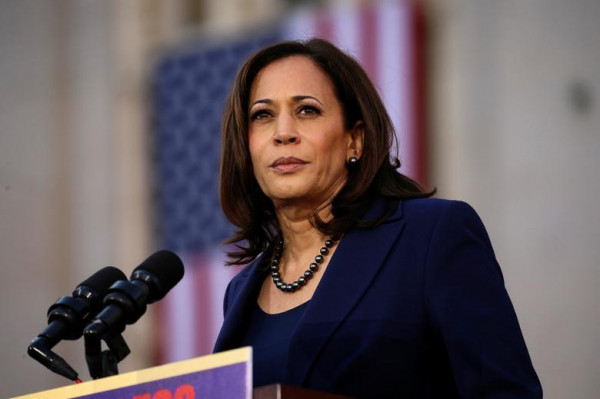Kamala Harris in the Biden Era: Navigating Sensitivities and Alleged Sidelines

In the intricate world of American politics, the dynamics within an administration can be as compelling as its external policies. A new tell-all book delves deep into the Biden administration, shedding light on Vice President Kamala Harris's role and her alleged sensitivities to internal criticism.
Franklin Foer's "The Last Politician: Inside Joe Biden's White House and the Struggle for America's Future" is the culmination of two years of reporting from within the administration. The book portrays Harris as being "acutely sensitive" to any hint of criticism, always on the alert for the slightest sign of discontent from those around her.
Foer's narrative suggests that Harris, despite her historic position as the first Black woman to serve as Vice President, has been somewhat of a sidelined figure in the administration. This portrayal contrasts sharply with the roles vice presidents have played in recent administrations, where they often acted as key negotiators and influential behind-the-scenes figures. Foer speculates that President Biden's pledge to restore a sense of normalcy to American politics might have inadvertently relegated the vice presidency to a more traditional, less central role.
The book recounts instances that underscore Harris's challenges. In one meeting with Republican senators, Harris's critique of the economy under former President Donald Trump reportedly led to palpable discomfort among her colleagues. In another instance, a perceived snub of Senator Joe Manchin, where Harris allegedly did not offer a handshake or acknowledgment, further highlighted the challenges she faces in her role.
Yet, it's not all criticism for the Vice President. Foer acknowledges Harris's significant contributions in meetings, where she often brought forward overlooked questions about equity. Her dedication to her role is evident in her meticulous preparation, even if it sometimes results in over-scheduling and challenges in managing her responsibilities.
However, the book also touches upon the alleged centralization of power within the Biden administration. Figures like Ron Klain, Mike Donilon, and Steve Ricchetti are depicted as being more integral to the White House's operations than Harris. The Vice President's involvement in key domestic and foreign policies has reportedly been limited, with notable exceptions like her speech at the Munich Security Conference in 2022, just before the Russian invasion of Ukraine.
In conclusion, Franklin Foer's "The Last Politician" offers a nuanced look into the Biden administration, particularly focusing on Vice President Kamala Harris's role. As the administration continues its tenure, the dynamics within will undoubtedly evolve, and Harris's role, along with the challenges and triumphs it brings, will be keenly watched.














